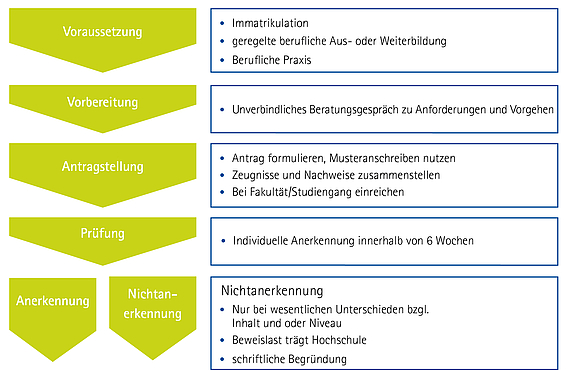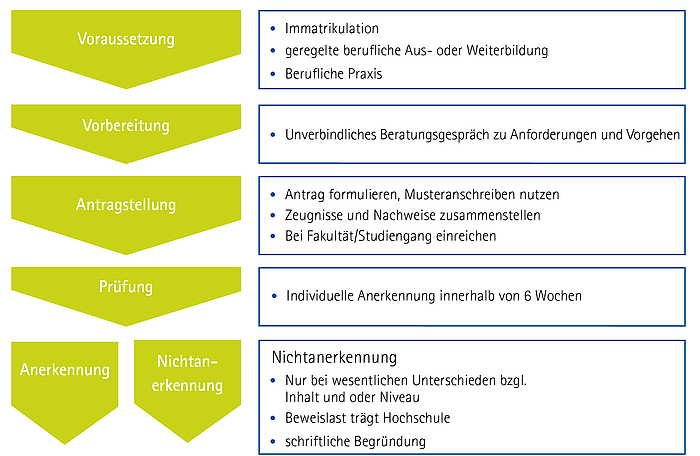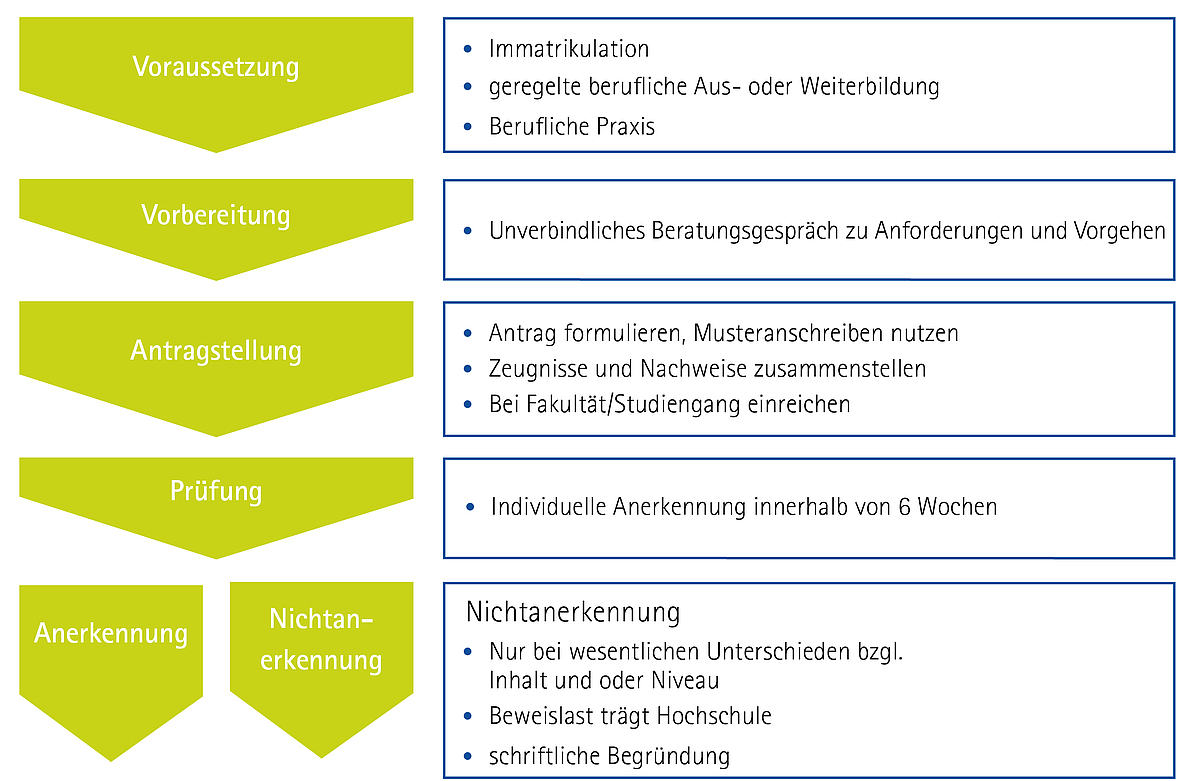At Leibniz University Hannover, skills acquired outside university can be recognised to degree programmes. A requirement for accreditation is equivalence of the content and level of the skills acquired and the academic assignments to be completed. Since transferred credit need not be repeated in the degree programme, recognition may shorten the period of study or reduce the work-load.
The Transfer Procedure


 ©
ZQS / Leibniz Universität Hannover
©
ZQS / Leibniz Universität Hannover
The Guidance Framework for the Accreditation of Skills Acquired Outside University(professional qualifications) contains a detailed description of the procedure (in German).
-
Step 1: Who can submit an application?
Competencies and skills acquired outside the university a follows may be recognised:
- Regular initial vocational training
- Regular professional development (e.g. state-certified technician (Techniker/in), state-certified master craftsman (Meister/in), state-certified senior clerk (Fachwirt/in))
- Occasional professional development in the form of specialist training (e.g. courses, seminars, in-company advanced training) or professional practice skills (informal vocational training)
and
- Further professional practice after completion of a formal qualification for entry into a profession.
The applicant must be registered at Leibniz University Hannover at the time of submitting the application.
-
Step 2: Before submitting the application
It is recommended that applicants talk to an academic advisor from the chosen faculty or degree programme before submitting an application. The aim is for applicants to find out about the course content and what is expected of them on the degree programme, and to discuss the accreditation options.
During the conversation, the applicant will find out, for example, which (personalised) information and supporting documents the relevant faculty or degree programme are needed to be able to review the application. However, no binding statements on the accreditation of specific qualifications can be made before the official review procedure.
-
Step 3: Submission of application
As a rule, applications for the accreditation of skills acquired outside the university are submitted at the start of the degree programme. Once the degree programme has started, skills acquired outside university can no longer be transferred to credits or examinations that have already been earned on the programme.
The applicant must present a number of supporting documents relating to the learning outcome together with the application. The skills applied to be recognised should be described in these supporting documents.
The supporting documents should include the following information:
- Your name
- A curriculum vitae in tabular form
- Certificates
- References and practical training certificates, where applicable
- Samples and documents of your work, where applicable, and/or
- Assessments by third parties, where applicable.
It is assumed that the applicant will provide all important and available information (the applicant has a duty to cooperate). -
Step 4: Responsibility
Applications for the accreditation of skills acquired outside university should be submitted to the office responsible in the relevant faculty or subject.
You can find the relevant recognition officer here (using the search criteria "Position" > “recognition officer”):
-
Step 5: Application review
In the review procedure, the documentation and supporting documents submitted by the candidate will be reviewed by the chosen faculty or degree programme, and then presented to the person responsible for the module for further review. The person responsible for the module then decides which (partial) modules can receive accreditation, which is communicated to the Examination Committee.
-
Step 6: Recognition
Recognition is usually for methodological skills, social skills and personal skills, rather than for subject expertise.
Grades are not usually transferred.
-
Step 7: Non-recognition
Non-recognition is only possible where there are large differences with respect to course content, level or competences between the skills acquired outside university and academic assignments.
The review focuses on determining whether the differences are so significant that they would jeopardise the success of the student’s continuation of studies. The burden of proof of a substantial difference between the skills acquired outside university and the academic assignments in the chosen degree programme lies with the university; it is incumbent on the university to prove the existence of major disparities. This burden of proof is without prejudice to the student’s duty to cooperate.
-
Step 8: Notifications
Once the complete documents have been submitted, an accreditation notification containing legal remedy instructions will usually be issued within six weeks by the Examination Committee or any other body that has been determined responsible in the Examination Regulations.
Negative decisions shall be substantiated in writing.
After receiving their notification, students can file an objection to Hannover Administrative Court within a month, otherwise the notification will be final.








